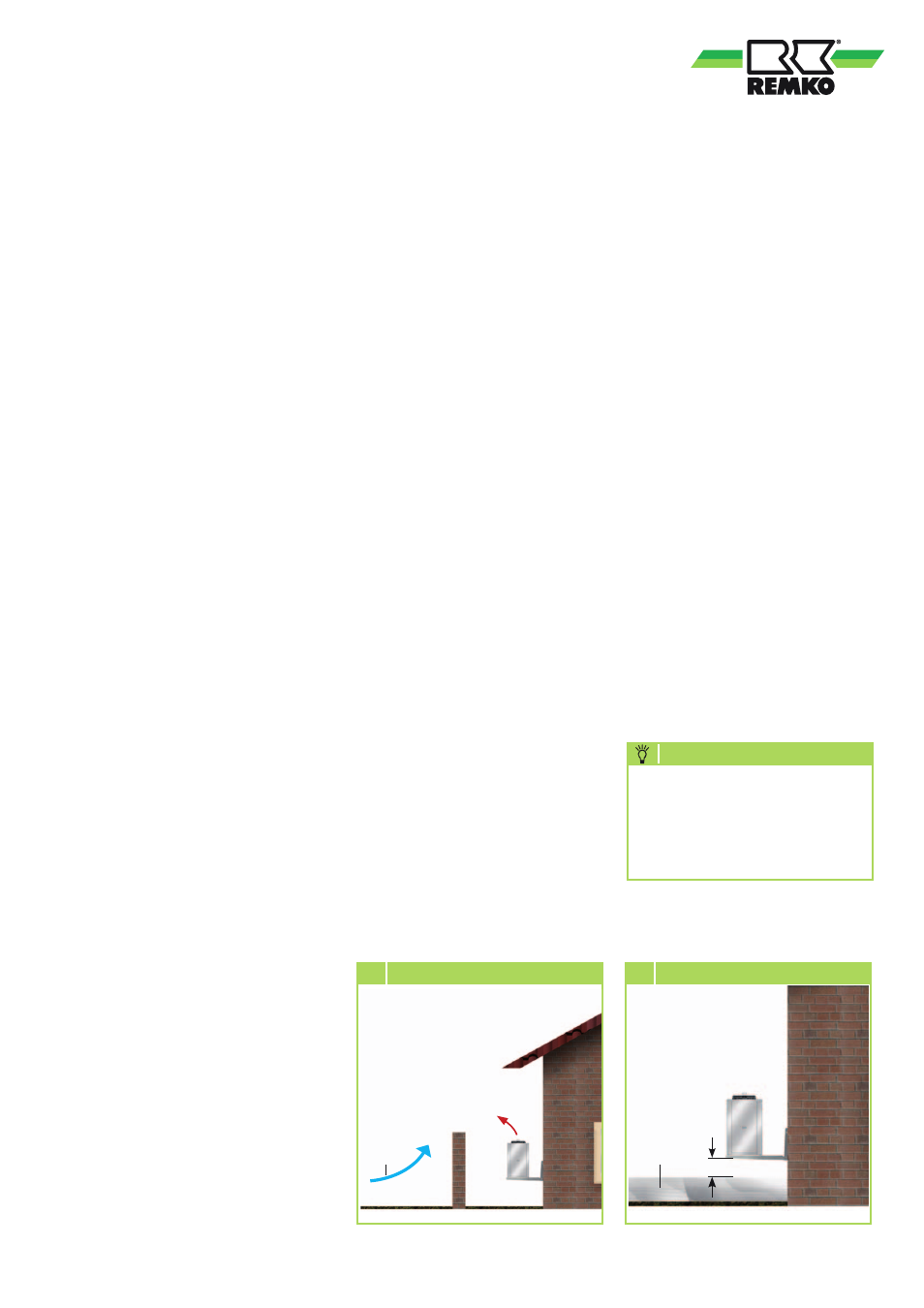REMKO KWL 130 H User Manual
Page 19

Wind
3 Windbreak
20 cm
Snow
4 Minimum clearance to snow
Wall openings
■
We recommend that the inside
of the opening be padded or
lined for example with a PVC
pipe to prevent damage to the
lines.
■
After installation, the wall
opening should be closed off
with a suitable sealant. Do not
use materials containing cement
or lime!
Installation material
The unit is fastened on vibration
dampers (accessories) to the floor
by means of bolts. The carrying
capacity of the console and the
wall must be taken into account
when fastening to the wall.
Selection of the installation
location
The unit is designed for horizontal
installation on a base in outdoor
areas. The installation site must
be level, flat and firm. The unit
should also be secured to prevent
toppling.
The unit can be installed outside as
well as inside a building.
In the case of outdoor installation,
please follow the instructions given
below to protect the unit against
the weather.
Rain
The unit should be at least 10 cm
off the ground when mounted on
the roof or ground. when mounted
on the roof or ground.
For cooling and heating units (only
HP-function) elevated installation
increases the generated heat
capacity.
Sun
The finned condenser gives off
heat in cooling mode.
Exposure to sunlight further
increases the temperature of the
fins and reduces the heat released
by the finned heat exchanger.
The unit should, whenever
possible, be installed on the north
side of the building.
If necessary, take measures
to provide sufficient shade
(responsibility of customer).
This can be accomplished with
a small roof covering.
However, the discharging warm air
flow may not be affected by the
measures.
Wind
If the unit is being installed where
it is windy, care must be taken that
the discharged warm air is carried
off in the prevailing wind direction.
If this is not possible, it may be
necessary to install a windbreak
on-site (Figure 3).
Ensure that the windbreak does
not adversely affect the air intake
to the unit.
Snow
The unit should be wall-mounted
in areas of heavy snowfall.
Installation should then be at
least 20 cm above the expected
level of snow to prevent snow
from getting into the outdoor unit
(Figure 4)
.
Installation inside buildings
■
Ensure that heat can dissipate
adequately when placing the
outdoor unit in cellars, attics,
adjoining rooms or halls (figure 5).
■
Install an additional fan with
the same air flow as that
of the outdoor unit being
installed in the room which
can compensate any additional
pressure losses with ventilation
ducts (Figure 5, Page 20).
■
Ensure a continuous and
unobstructed air flow from
outside, preferably using
sufficiently large air openings
(Figure 5, Page 20)
.
Cooling or heating perform-
ance changes as a conse-
quence of the ambient condi-
tions influenced by rain, sun,
wind, and snow.
NOTE
19